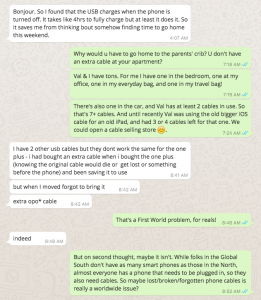Recently a friend and I had a conversation on the messaging service WhatsApp about mobile phone charging cables:
I’ll have to visit There’s Research on That! to see if my hunch is correct about mobile phone charging cables causing problems in folks’ ability to fully use their phones and stay connected with friends and family…

